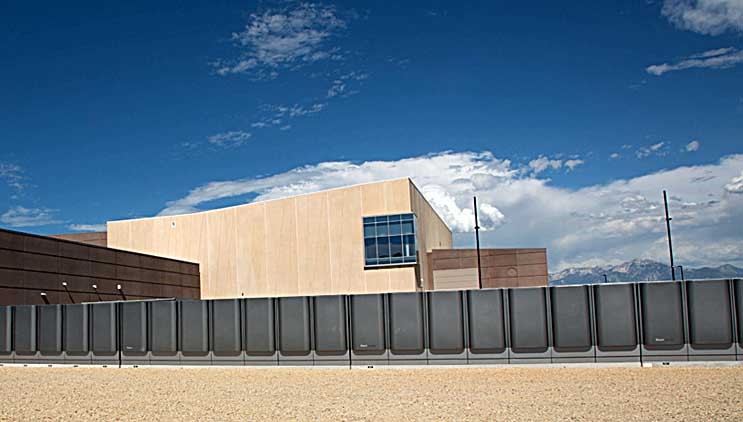Fuel Cell-Powered Data Centers
Justin Lewis
Data centers are an increasingly vital component of today’s digital technology-driven economy. From cloud computing to communications to finance, countless industries rely on data centers to provide a centralized facility to conduct IT practices including storage, management, and transmission of data. Providing these services 24/7, 365 days a year requires a large amount of energy – according to a 2016 article in Data Center Knowledge, 2% of our nation’s total energy consumption - and leaves little room for failure, as each minute a data center is down can cost thousands of dollars. To ensure that these services remain online even during power outages, data centers rely on power sources such as backup generators for reliability.
The growth in demand for telecommunications and computing capability has created a need for reliable data management, and with it, a market opportunity for fuel cells. Fuel cells, alone or in combination with other technologies, can provide exceptional reliability. Once installed, fuel cells can produce electricity at a cost lower than grid power, an advantage which is incredibly useful in an uncertain energy world.
The clean, reliable, and scalable generation of fuel cells provide an attractive option for data centers to meet energy demand as well as sustainability goals. Fuel cells are consistent with the continuous push to reduce environmental and climate impacts of data centers with low-to-zero emissions depending on fuel source. A fuel cell system can even be used to heat or cool the data center to maintain the proper climate conditions to maximize the efficiency of servers, while increasing the system’s overall efficiency.
Data and call centers require high quality, reliable power. As noted by an analysis conducted by the First National Bank of Omaha, a comprehensive backup power plan that includes fuel cells and other power sources is capable of providing the 99.9999% availability needed by these types of institutions - that’s 31.5 seconds of downtime per year. This high-level reliability has prompted many leading companies to deploy fuel cells at corporate headquarters and data centers, taking advantage of the unique benefits that fuel cells offer.
Due to their extremely high reliability, when eBay opened its Salt Lake City data center in Utah in 2013, they opted to use 6 megawatts of Bloom Energy fuel cells as the facilities’ primary power source, with the electric grid only used as back-up. In 2015, eBay added an additional 3.75MW of Bloom fuel cells for a total of 9.75 MW. By using Bloom’s fuel cell systems eBay eliminated the need for large and expensive backup generators and dramatically reduced the facilities’ emissions.
Microsoft is also exploring the use of fuel cells for its power-intensive data center operations. The computer giant is currently demonstrating the use of fuel cells directly integrated into its server racks in Seattle as the world’s first gas datacenter. This pilot project connects racks directly to natural gas pipes to power its integrated fuel cell stacks, rather than using traditional electrical gear. Microsoft claims that this distributed power architecture could double the energy efficiency of its data centers, all while reducing costs and improving reliability.
The National Renewable Energy Laboratory (NREL) in Colorado is also exploring fuel cells as a solution for overcoming challenges to energy efficient and sustainable data centers. Last year NREL announced that it is working with HP Enterprise, Daimler, Microsoft, and Power Innovations on a proof-of-concept demonstration using a hydrogen fuel cell to provide power to the lab's data center. The demonstration features a 65-kilowatt, automotive hydrogen fuel cell, provided by Daimler, that will be deployed in NREL's high-performance computing data center. The fuel cell—fed by the lab's renewably generated hydrogen—will provide high-voltage, DC power directly to two or three racks housing information technology (IT) equipment, provided by HPE and Intel. The IT equipment, representing both HPC and cloud computing elements, operates under workloads provided by Microsoft.
Data centers provide the backbone to a digital economy as they process internet searches, store data and carry out financial transactions. In the quest to reduce the environmental and climate impacts of energy-hungry data centers, fuel cells can ensure the security, reliability, and resiliency of the technology infrastructure we all rely on.


